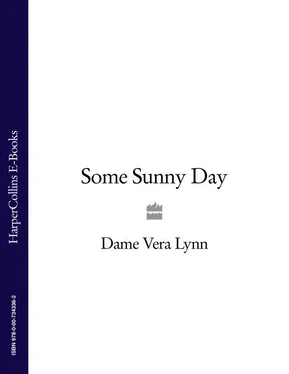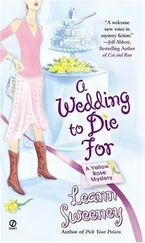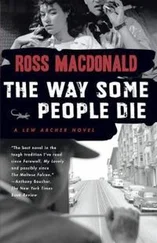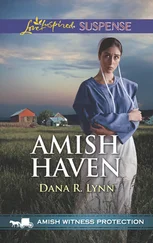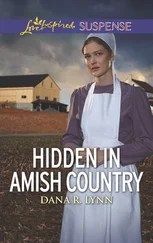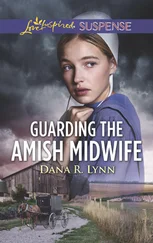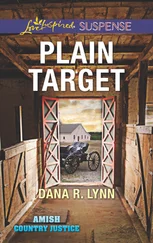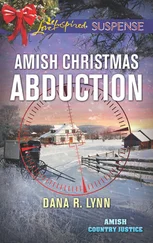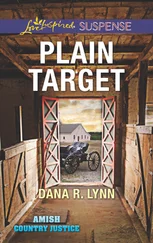Perhaps unsurprisingly, a lot of the events I am involved with today revolve around wartime. I still attend many charity events and veterans’ anniversaries, and often the ones that I find most moving are to do with Burma. Five years ago I attended a grand reunion for Burma veterans at London’s Imperial War Museum. It was the sixtieth anniversary of a number of decisive battles fought by the ‘Forgotten’ Fourteenth Army in the vicious Burma jungle campaign. More than a hundred veterans attended, many in their eighties and nineties. To my astonishment, there was one man there I recognized, although I wouldn’t have known his name—Neville Hogan. It turns out I met him on my tour of Burma in 1944. I sang a concert for the Second Battalion Burma Rifles. He was sick in hospital at the time and I visited him there. When I asked him what I could do for him, he said, ‘A kiss.’ I held his hand and kissed him on the forehead.
At the reunion he was now eighty and I was eighty-seven. I kissed him again on the forehead. He remembered my visit to his camp vividly and told a reporter about it afterwards: ‘Dame Vera came into the room and visited every soldier individually. She stood at the side of the bed and asked each one if she could have anything sent over for them. She was fantastic. She used to come and play off the side of a truck and boost everyone’s morale.’ I’m very proud of that. To think that I entertained audiences from 2,000 to 6,000 in that blazing heat. The boys would just come out of the jungle and sit there for hours waiting until we arrived and then slip back in once we’d left. What I enjoyed most, though—and still do now—was chatting to the troops. What they needed was a contact from home rather than a concert. I knew it was my place to provide that. It was the least I could do. When I talked to the men and women who served at war about their thoughts and how they felt about going into action, many of them would just shrug, saying, ‘It’s what we are trained to do.’ Their humility was matched only by their courage, honour and duty.
That was their vocation; singing was mine. People have always been amazed to learn that I can’t read music. I told a newspaper in 1943, ‘I learn a tune pretty easily although I can’t read music. I get the words into my head and then run them over and over again until I don’t have to bother any more because they just come out naturally. Then I can think about the singing.’ They called me ‘a natural born singer, who sings like a thrush, sweetly and spontaneously’. And they added: ‘There are plenty of people who can read music who could not sing like Vera in a thousand years. And there are not many who would not give their ability to read music for a voice like hers.’
It makes me laugh to read what else I told them for that article: that I wanted to retire before long (seventy years later and I haven’t really retired at all), that I wanted to get the garden going properly (that took another fifty years) and that I wanted ‘a couple of kids, maybe, when I get time’ (I had one daughter, Virginia, born in 1946; work got in the way of having the bigger family I had once dreamed of). My music publisher, Walter Ridley, added his thoughts at the time: ‘The secret of the kid’s success is that she’s genuinely sincere and sounds it.’
I like to think that he was right and that is why my voice and my songs are remembered now. If, in any small way, that can go towards encouraging people to commemorate the sacrifice of those who fought in the Second World War, then I am glad. We should always carry on remembering what happened seventy years ago. Even now I am constantly inspired by the work and bravery of our servicemen and women. Simon Weston, for example, the hero who was badly burned during the sinking of the Sir Galahad during the Falklands conflict, has become a good friend of the family. Earlier this year (June 2009) I was with him at the opening of a new burns research laboratory at the Blond McIndoe Research Foundation. It is based at the Queen Victoria Hospital in East Grinstead, where Sir Archibald McIndoe treated hundreds of burned air crew during the Second World War. There were a lot of burns victims during the Second World War—I remember visiting so many of them myself—and centres like this continue to be invaluable even today. Many of them—like this one—are funded solely on charitable donations. I feel it’s important for me to keep going if I can help in any way at all.
As I look back on my life, I am grateful to have survived that time and to be a symbol of an era which must never be forgotten. If that is my legacy, then I am proud of it. We still have servicemen and women serving abroad now and who knows when they will be called upon to fight for their country in the future? It’s for the ones who are fighting now that we must always make sure that the ones who fought in the past are not forgotten.
As for me, although my last official public performance was in 1995 at the VE Day Golden Jubilee concert outside Buckingham Palace, people still seem to hold me in mind. I feel privileged to have done three Royal Variety shows across three decades—in 1960, 1975 and 1986—and to have performed with some of the favourites of the last century: Bing Crosby, Morecambe and Wise, Cliff Richard. All in all it has been quite a journey for a plumber’s daughter from East Ham who almost didn’t make it to her third birthday.
CHAPTER ONE Overture & Beginnings
The funny thing is, I don’t remember singing as a tiny child. It’s only from my press cuttings that I know that apparently I could sing five songs right through by the time I was two. And I’m sure that when I was two and a half my uncle George taught me two old favourites—‘K-K-K-Katy’ and ‘I’m Sorry I Made You Cry’—because I’ve been told this many times. But I believe that a person’s life only really begins with what they can remember for themselves. So my story has got to start, strangely enough, with the time I nearly died. I was not quite three years old.
I have a recollection of being all on my own in some kind of a tent, surrounded by steaming kettles. I can’t shake off the impression that the tent was out of doors. Wherever it was, it was certainly in East Ham Hospital, and I was in isolation there with a dangerous illness called diphtheric croup. The steam was part of the treatment, I suppose.
I found out when I was older that at one stage they didn’t think I was going to live, and it’s peculiar to look back now and realize that there very nearly wasn’t anything to tell. I don’t know how long they kept me in the tent, but I was in hospital for three months altogether, and came out in time for my third birthday in 1920.
By that time I’d missed Christmas, so I had my Christmas and birthday all in one, in March. Mum even got me a Christmas tree from somewhere. I was Vera Welch then, and we lived in Thackeray Road, East Ham. All my life most people have thought, Oh, Vera Lynn, she grew up in the East End. But it’s not really the East End at all. East Ham is in fact classified as Essex. That ground-floor flat in Thackeray Road is my other earliest memory. I can see the little kitchen and wash-house now—especially the wash-house, where I went through a right terrible scrubbing from an aunt who’d come in to look after me. My mother had had to go off somewhere for the day—to make a visit to a hospital, I think—and this aunt was taking care of me, and when the time came for her to wash me she scrubbed and rubbed me dry so hard that I can feel the rough towelling even now, all these years later. In the kitchen was a high dresser along one wall, and that sticks in my memory because my brother knocked an egg-cup off it and broke it and got a clip round the ear for it.
Читать дальше
